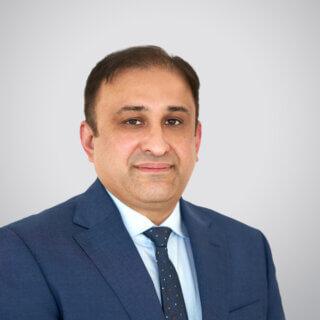PCOS Clinic at King’s Endocrinology Department
Polycystic ovary syndrome (PCOS) is a hormonal disorder that affects women in their child-bearing years. The ovaries, which are part of a woman’s reproductive organs normally produce estrogen and progesterone (these are hormones that regulate the menstrual cycle) as well as small amounts of androgen (male hormones). Women with PCOS tend to overproduce the male sex hormones – androgens.
King’s Endocrine PCOS Clinic is operated by UK Trained Endocrinology Experts in Hormone Disorders. They are able to diagnose and treat hormone imbalances by helping to restore the normal balance of hormones in the body. King’s believes in a multidisciplinary approach, and if required you may also be referred to other subspecialists.
The term polycystic ovary syndrome describes the numerous small fluid-filled sacs known as cysts that develop in the ovaries. Ovulation occurs monthly in which a mature egg is released from the ovary to be fertilized by a man’s sperm.
If the egg fails to be fertilized it is sent out of the body during your period. When the woman fails to make enough hormones that are required for ovulation to take place, then ovulation does not occur. In such cases, the ovaries can develop numerous small cysts which create androgens. Women with PCOS have high androgen levels which contribute to problems with the menstrual cycle.
When to See a Doctor
There are various symptoms of PCOS that can develop during puberty around the first menstrual cycle or later in life. If you experience any of these symptoms, you should visit a specialist for a diagnosis. The symptoms include:
- Irregular periods
- Heavy bleeding
- Excess hair growth on the face, back, belly, and chest –hirsutism
- Enlarged ovaries or recurrent cysts
- Weight gain especially around the abdomen
- Thinning hair or male pattern baldness
- Persistent acne
- Infertility
- Thick or dark patches of skin in the armpits, back of the neck, and under the breasts
What Happens During Your Visit to the Doctor?
When you visit a specialist for PCOS diagnosis, he/she will ask about your overall medical history, menstrual cycle, weight changes, and other symptoms mentioned above that you may be experiencing. This will be followed by a visual and manual pelvic exam to check the health of the reproductive organs, both internally and externally.
To have a definitive diagnosis of PCOS other tests will be performed such as blood tests to look for higher than normal levels of androgen hormones as well as to check for levels of blood glucose, cholesterol, and triglyceride.
An ultrasound test will also be performed to check on the size of the ovaries and if they have cysts. This test also looks at the thickness of the endometrium (lining of the uterus).
Treatment of PCOS
PCOS treatment is dependent on various factors such as your age, the severity of symptoms, and your overall health. The treatment plan, which is tailor-made to fit each patient’s symptoms, may involve the following:
- Lifestyle changes: Living a healthy lifestyle that involves more physical activities and eating a healthy diet can help lessen your symptoms.
- Medication: Medication can be prescribed for different reasons
- Surgery: If other treatment options fail to work, surgery can be recommended in order to improve fertility.
BOOK AN APPOINTMENT







